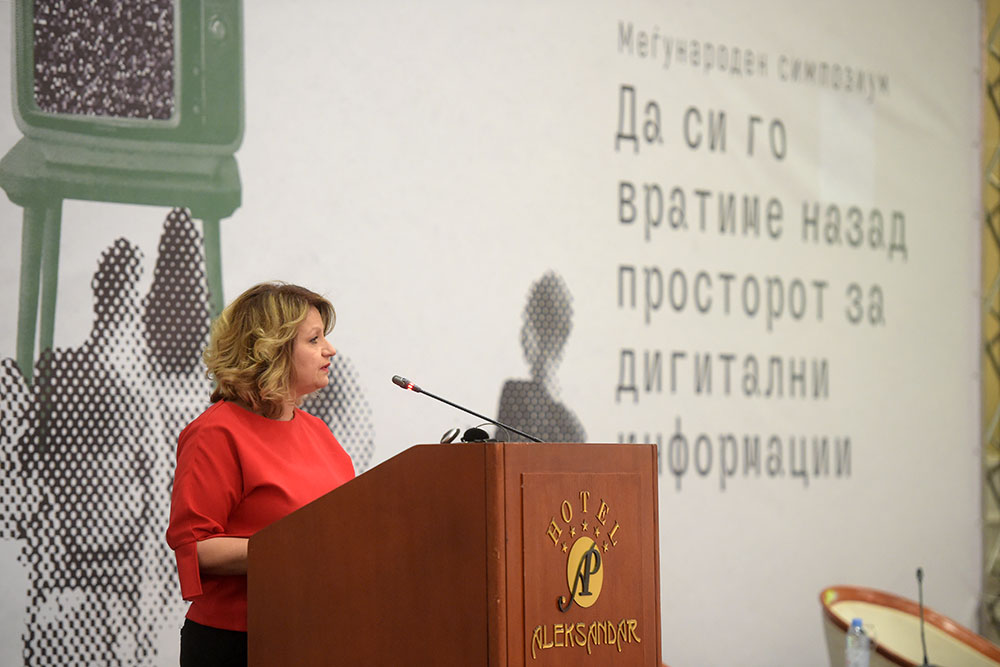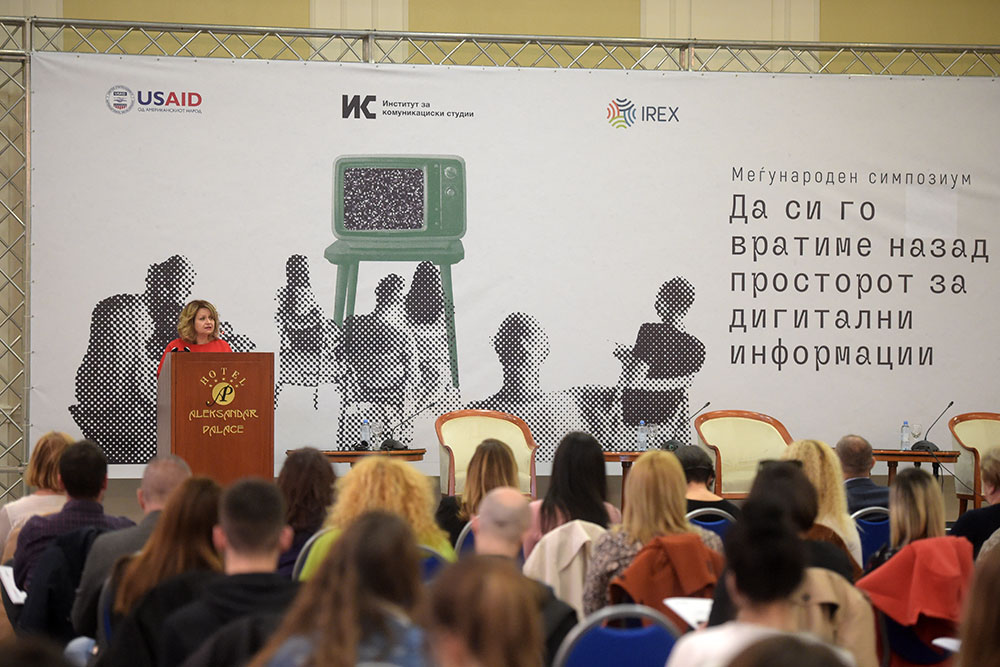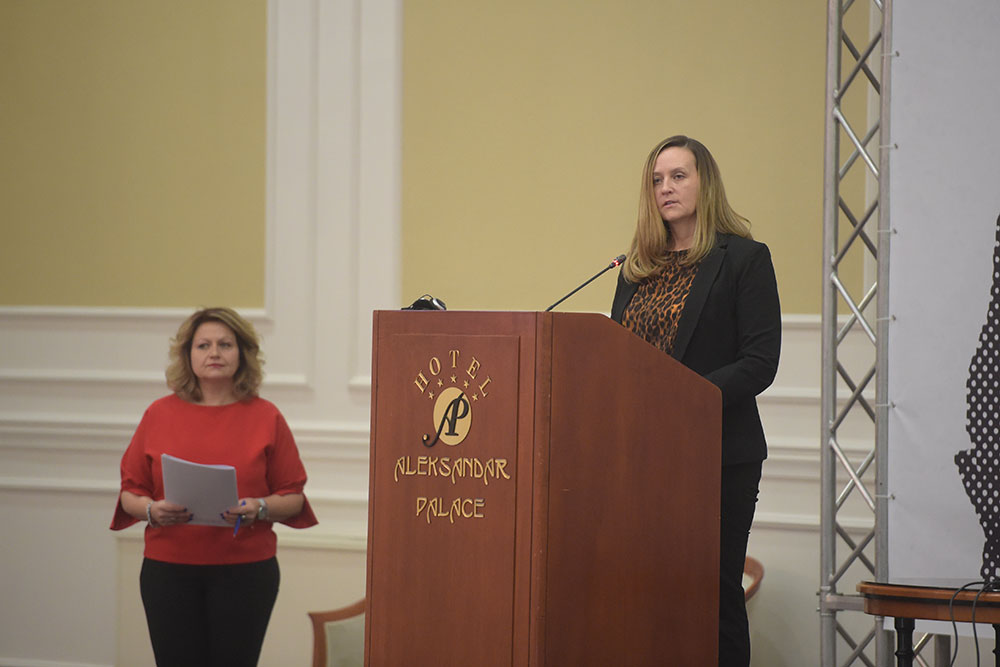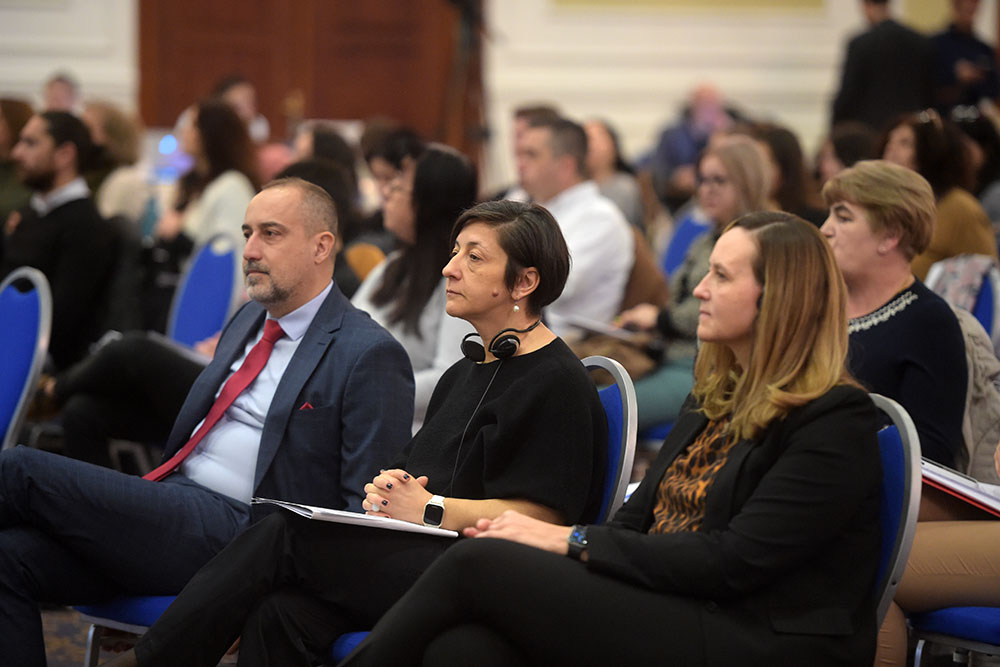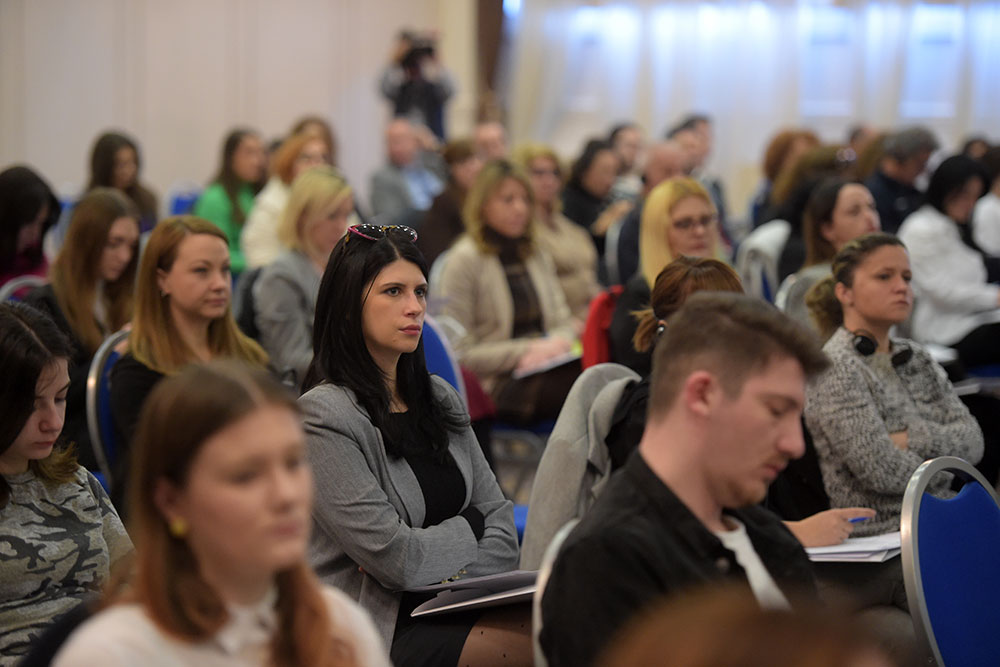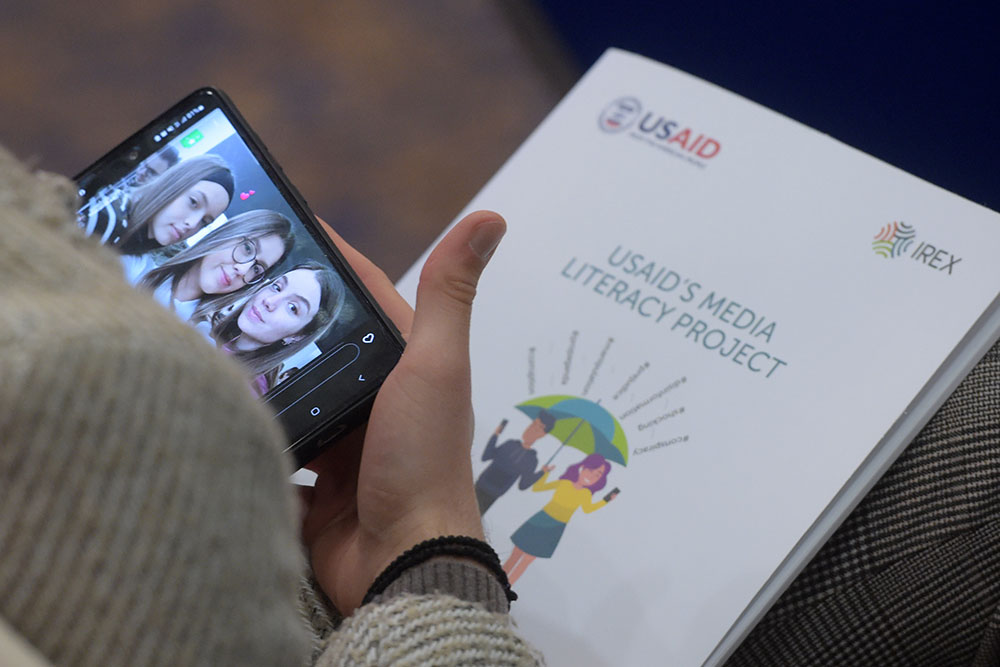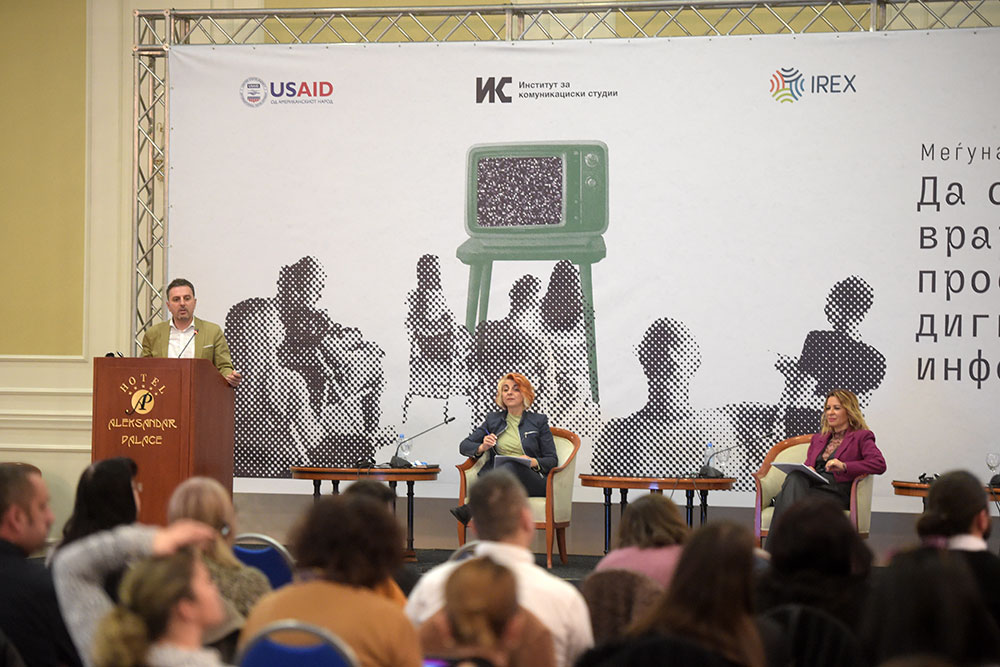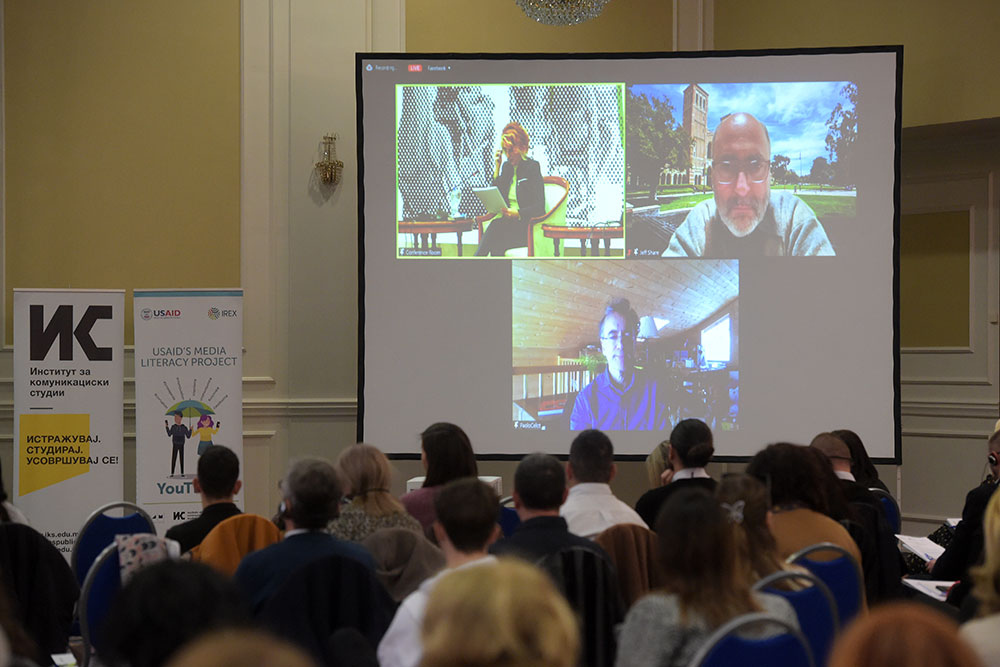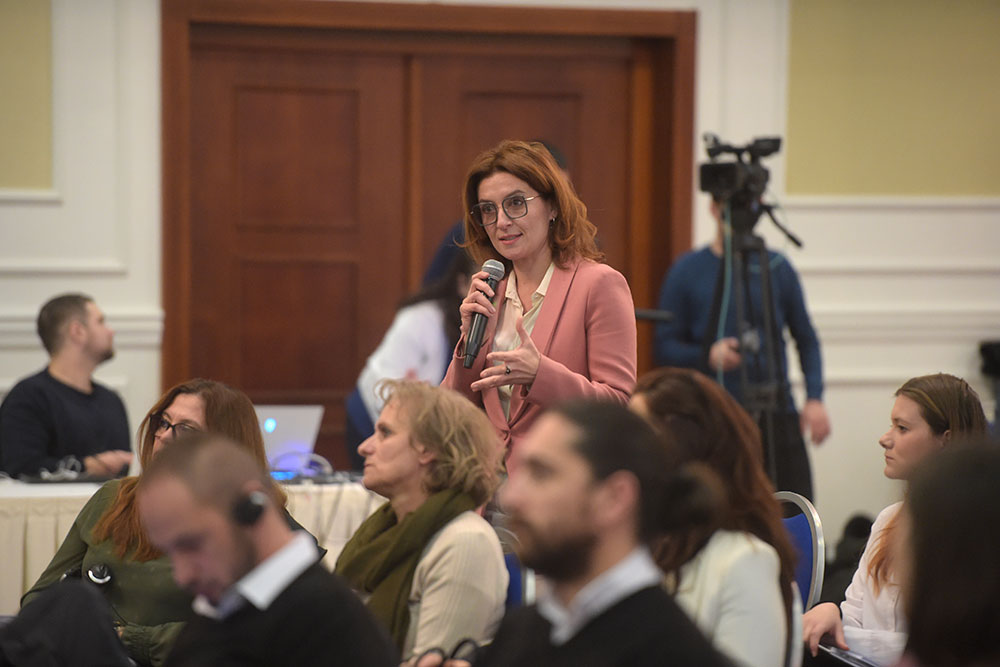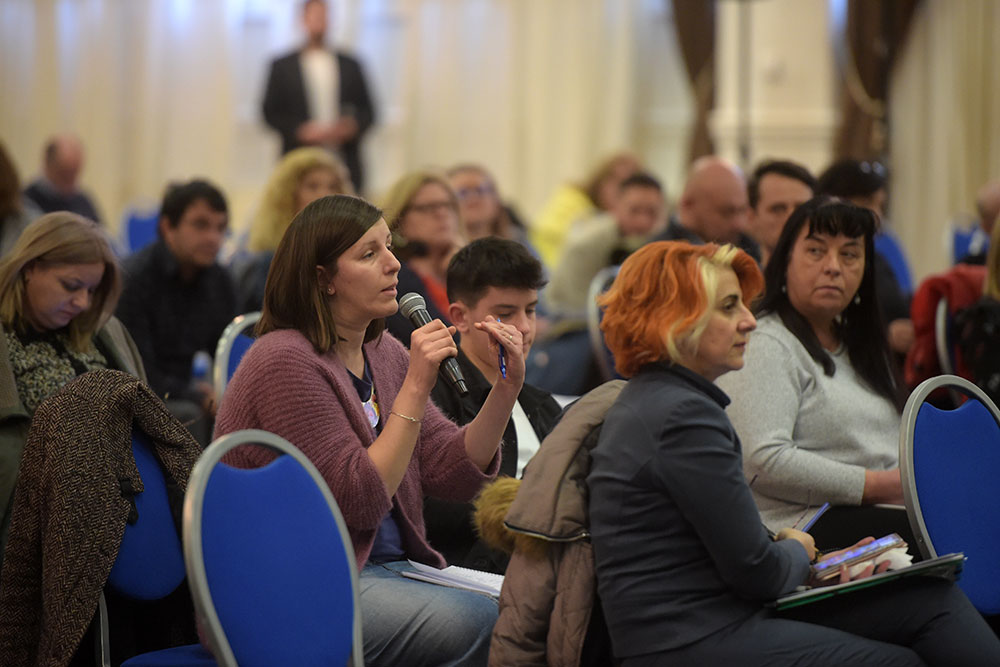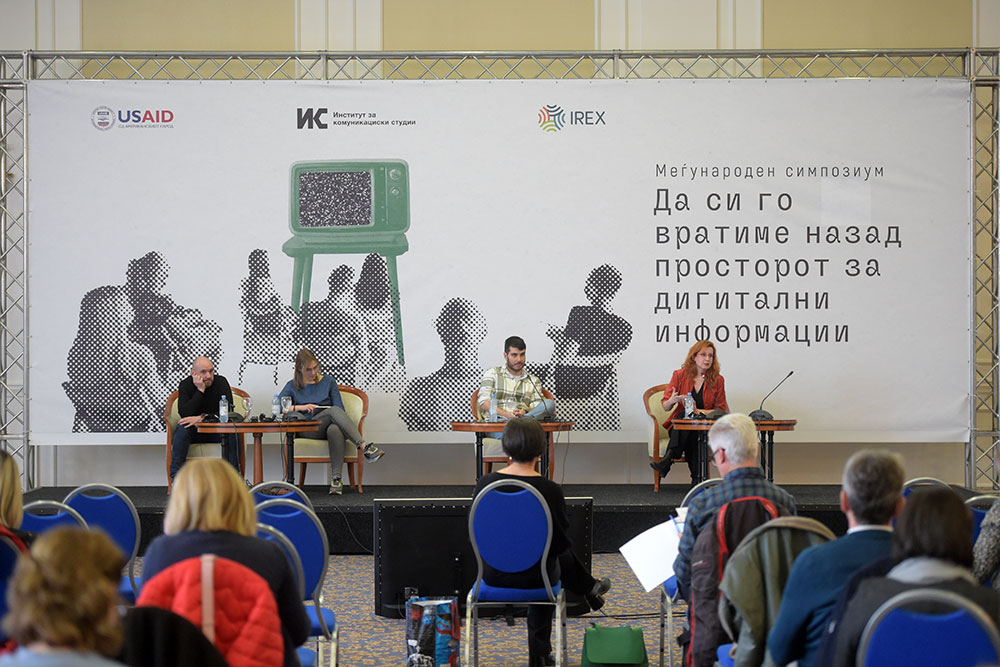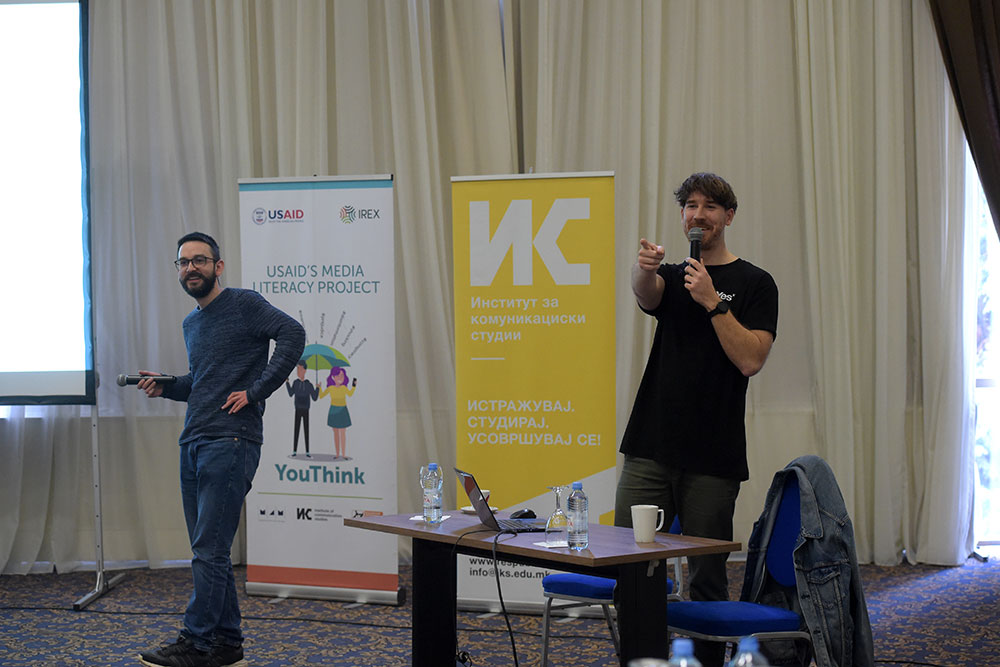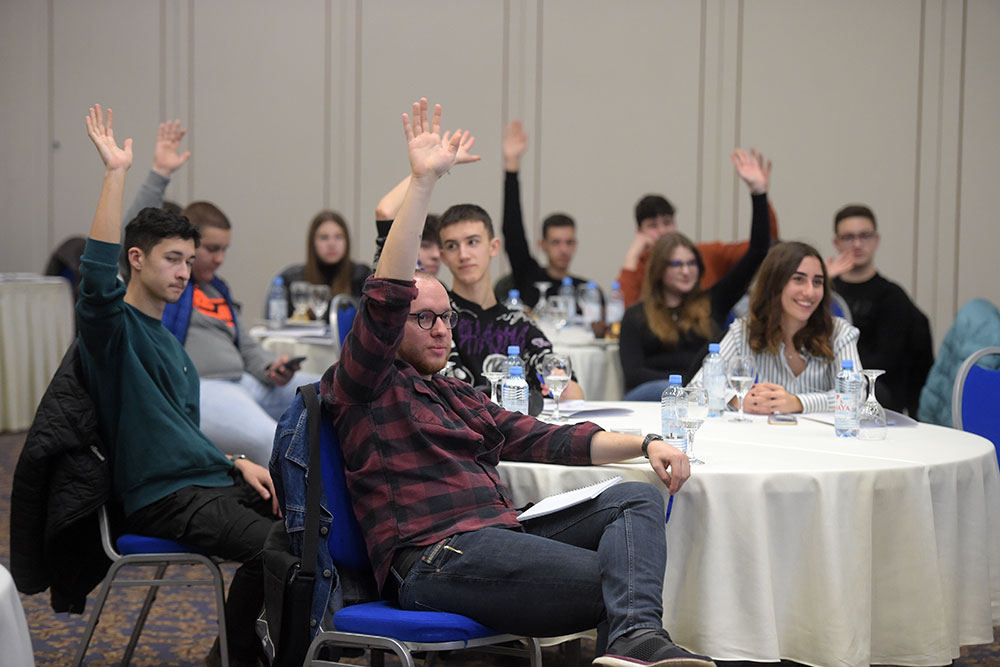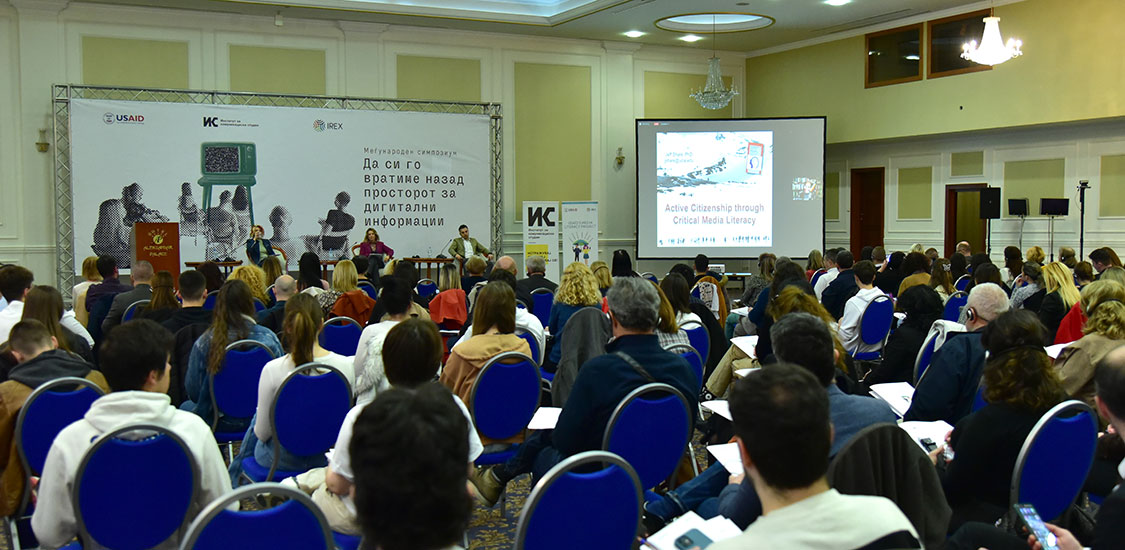
Reclaiming the digital information space
The Institute of Communication Studies (ICS) and IREX organized the international symposium “Reclaiming the Digital Information Space” as part of the USAID media literacy project “YouThink”.
“YouThink” is a five-year program funded by the United States Agency for International Development (USAID) and implemented by IREX in cooperation with local partners – the Institute of Communication Studies (ICS), the Macedonian Institute for Media (MIM) and the Youth Educational Forum (MOF).
The director of ICS, Zaneta Trajkoska, opened the event and presented the objectives of the symposium, and emphasized that in today’s media-saturated world, media literacy is a key competence for everyone, so educational programs and initiatives must be inclusive to reach as many people as possible. “Media literacy must be responsive to the constantly changing digital environment. It must include creativity and technology, and citizens must develop skills in checking, understanding, researching, and identifying information sources and building resistance to misinformation,” said Trajkoska.
In her address, the representative of USAID in North Macedonia, Jeri Dible, emphasized that media literacy and critical thinking will help young people to cope with information chaos. “Consumers make their own decisions instead of passively receiving information from algorithms. Media literacy is important to combat misinformation and disinformation to preserve democratic values,” Dible said.
Irene Andriopoulou, Deputy Secretary General at the International Steering Committee of the UNESCO Alliance for Media and Information Literacy, emphasized the dangers of disinformation and the importance of media literacy and critical youth to counter its erosive effect. “Today, everyone has their own volcano of opinions that erupts depending on the agenda, and this is mostly reflected through social media. Information can be equally risky if people only perceive it, so it is important to be able to understand it. Disinformation is not easy to recognize, especially when mixed with the rest of the news,” Andriopoulou said in her speech.
Paolo Celot, founder and secretary general of EAVI – European Association for Viewers’ Interests, emphasized the importance of active young citizens in order to encourage professional and reliable media content. “Participation is an individual’s ability to use media in terms of critical thinking. Participation is about connecting, sharing, and participating in public life. Media literacy is at the core of all of this. This concept relates to digital or active citizenship, which is related to democracy, disinformation, communications, connectivity, empowerment or engagement in essence,” Chelot said.
During the symposium, a youth digital security workshop led by the SHARE Foundation was held, where a group of 50 high schoolers, students, and other young people learned how to manage modern digital media safely and responsibly.


